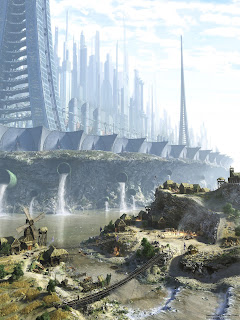In the 2000s, when I was in high school, civil disobedience was lauded as something almost inherently noble. Our teachers encouraged us to think like Rosa Parks or Martin Luther King, Jr., and grow up to be the kind of people who would disobey unjust laws. The moral groundwork for this philosophy, though our teachers were almost certainly ignorant of the fact, was the very American idea that Benjamin Franklin proposed as the motto for the United States: “Rebellion to Tyrants is Obedience to God.”
Our teachers, though, came at the problem from a different perspective. They were a remnant of the hippie movement of the 1960s and ’70s. A movement which, like the teachers themselves, never quite attained intellectual maturity. Their desire to challenge authority and “the man” was based not on a moral commitment to freedom which Franklin would have recognized, but simply on a desire to be the authority themselves.
A true liberal and a power-hungry thug look similar when they’re in opposition. The French Revolutionaries began by patterning themselves explicitly after their American cousins. But whereas Washington rejected the proffered crown, Robespierre very much desired to be king. As did many of the comrades Robespierre killed—and those who finally killed him.
Fidel Castro in the jungle seemed like a democrat to many. American taxpayers (via the CIA) supported his movement with a gift of $50,000. Then it turned out Castro’s goal was the same as Batista’s—to be a dictator—and the CIA had to spend the next five decades trying to kill him. We learned from this experience by later sponsoring, and on a vastly larger scale, that great lover of democracy, the mujāhid Osama bin Laden.
Should we be surprised when all the “liberals” in Australia, New Zealand, Canada, and the United States turn out to be fascists in disguise? Should we be surprised that what they truly desire is to exert unlimited power over the lives of others? Of course not. The abuse of power, once power is attained, is practically universal. George Washington rejected absolute authority, and Cincinnatus returned it to the Roman Senate after just 15 days. But in every single other case in history, a dictator remains a dictator until he or his dynasty is killed off.
We are entering the post-Western democracy stage of history. And we’re further along than we thought. No one was shocked when Germany or Austria locked people in their homes during COVID—democracy in a European nation-state has always been a thin veneer. But it was shocking to read of people attempting to climb the fences at Australian COVID concentration camps and being hunted down by the police. It was shocking to see Canada’s party-line vote to prolong emergency powers so they can make protests illegal, imprison political enemies, and confiscate dissenters’ property.
The big surprise isn’t that the Western world is giving up its freedom: The surprise is that freedom is already gone and nobody knows exactly when or where it went. The voters in these countries spent decades not paying attention to each incremental expansion in government power and taxation, until they finally looked at the balance in their political bank accounts this week and discovered someone had run away with all the funds.
Where did the freedom go? It was swallowed by the cities.
For at least the last 10 years in America, and maybe closer to 20, only the cities have had a say in state government. Consequently, only the cities wield power on a national level. Most people live in cities now—a danger which the founding fathers foresaw but didn’t know how to prevent. Jefferson wrote to Madison that when our governments “get piled upon one another in large cities, as in Europe, they will become corrupt as in Europe.”
All our protections against the abuse of political minorities’ rights assumed a more-or-less even distribution of political sentiment across the nation. No one had a good answer to the problem of a tyranny of cities over the countryside. Yet it’s a problem we should have been thinking about: The French Revolution was a tyranny of Paris over the Vendée. The Soviet Revolution was a tyranny of Moscow over the farmers in the Ukraine. And still, we never considered what to do with a tyranny of New York and Chicago and San Francisco over our own countryside. An hour north of Hartford, Connecticut, people are as just as traditionally American as anyone you’ll meet in South Carolina or Texas. But they have no say over the laws that govern them.
The Canadian truckers’ protest is really a proclamation by Canada’s countryside: “We don’t have any control over our own lives!” To which the cities respond: “Darn right you don’t!”

